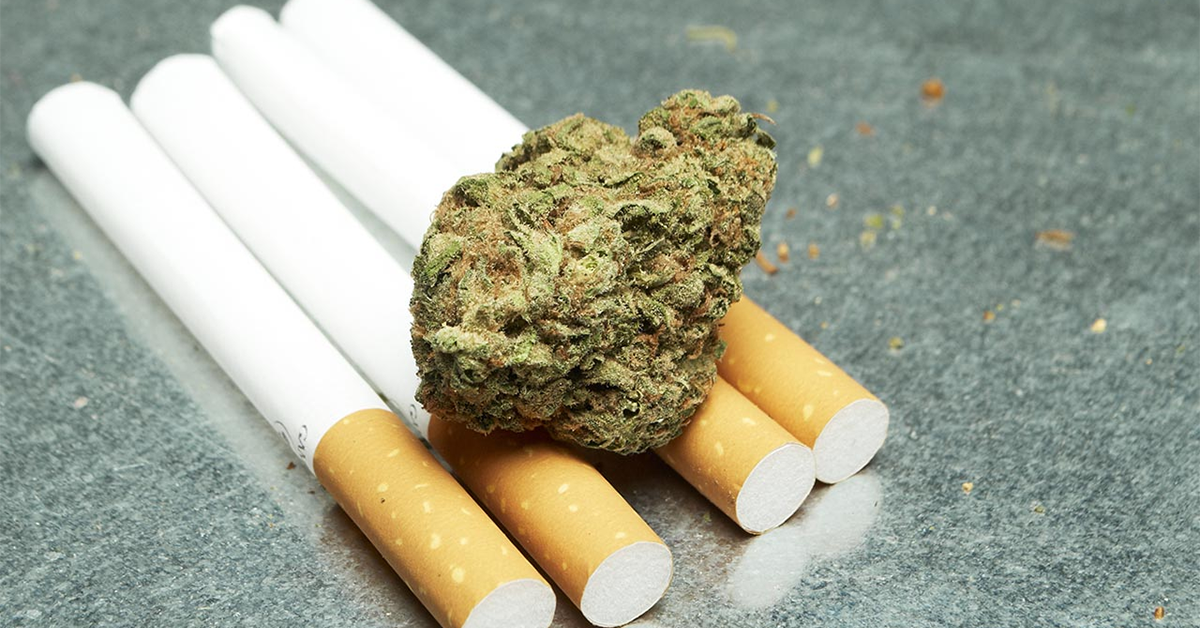Wayne State University Cultivates Future Cannabis Chemists

This fall, Wayne State University (WSU) in Michigan warmly welcomed students to its new undergraduate certificate program, spotlighting the fast-growing field of cannabis science. The program, which has seen a staggering increase from five to 100 majors since its introduction, is intended to lay a solid foundation in analytical chemistry, separation science, and laboratory research, specifically tailored for the cannabis testing industry.
Andrea Matti, an assistant professor of chemistry at WSU, expressed astonishment at the surge in interest. "The enthusiasm we've seen is just incredible. When I heard we had 100 majors, from just five, my reaction was, 'What? That's a 20-fold increase!' But it makes sense – we introduced cannabis," she shared.
The burgeoning program aims not only to equip students with the skills necessary for cannabis testing and regulation – covering both cannabidiol (CBD) and tetrahydrocannabinol (THC) – but also to pave the way for careers in a field that is experiencing both local and national growth. With the cannabis industry swiftly expanding, students immersed in its science can unearth new methodologies, establish new standards, and make noteworthy contributions.
Matti emphasized the significance of providing opportunities for students who harbor a genuine interest in laboratory work and testing, even if they do not aspire to enter the healthcare sector. "Many of our majors are pre-med, pre-pharm, or pre-PA. However, I also wanted to provide a pathway for students who are passionate about learning regarding these instruments and desire a career in lab and testing environments," she elaborated.
To be eligible for the cannabis chemistry certificate, students must have completed a minimum of 60 credits and maintain a GPA of 2.5 or above. Notably, the program also welcomes students who have previously secured a bachelor's degree from any institution.
In a related vein, the University of Michigan-Flint recently embraced the expanding interest in cannabis through its academic offerings. The university unveiled a new course this fall titled "The History and Culture of Cannabis," marking its inaugural step into the academic study of marijuana. This course endeavors to provide students with an exhaustive overview of the historical, present-day, and future contexts of cannabis, spanning its cultural, economic, and sociopolitical influences.
Both Wayne State University and the University of Michigan-Flint are contributing to a growing trend in the U.S., where academic institutions are increasingly incorporating cannabis-focused courses to meet the rising demand for informed research and knowledge in the field.
Cannabis Edibles Recall Announced by Michigan's Cannabis Regulatory Agency

The Michigan Cannabis Regulatory Agency (CRA) has issued a voluntary recall for specific marijuana-infused edibles, produced under the "Viola Grandma's Kitchen" brand by the cannabis company Shango.
This decision is based on two primary concerns:
- Shango couldn't prove the consistency or homogeneity of the THC within the product.
- The edibles surpassed the permitted THC concentration per serving.
Among the recalled edible variants are "Big Apple Dreaming," "Uptown Espresso," "Paradise Island," and "Auntie's Punch." Shango, a significant cannabis enterprise, operates in various states including Oregon, Washington, Nevada, and Michigan.
Approximately 2,200 of these products were sold between late May and late July at several dispensaries such as Information Entropy in Ann Arbor, Shango's outlet in Hazel Park, Emerald Fire Provisioning Center in Coleman, and Plan B Wellness Center in Detroit. An additional 6,800 units are currently quarantined at Michigan dispensaries, as confirmed by David Harns, a CRA representative.
Viola, the company behind the recalled edibles, was founded by ex-NBA player Al Harrington. They collaborated with Shango to meet the growing demand for Viola's edibles. Viola expressed surprise at the discovery of Shango's non-compliance with industry standards. They have shown full support towards the recall, emphasizing that no other Viola items are affected.
Shango has yet to issue a response.
Consistency in THC distribution is vital in cannabis edibles to ensure users receive a uniform experience. It's worth noting that recreational marijuana edibles are restricted to a maximum of 10 milligrams of THC per dose.
Advisory to Consumers:
- Those possessing the recalled products should return them to the dispensary for appropriate disposal.
- Any adverse reactions post-consumption should be promptly reported to health care professionals.
- Additionally, consumers can report issues directly to CRA via an "Adverse Reaction Reporting Form" available on their website or by calling 517-284-8599.
For comprehensive details on dispensaries that sold these products and the specific dates of sale, please visit Michigan.gov/CRA/Bulletins.
Cannabis Consumption and Cardiovascular Health

Recent findings from a study published in the American Journal of Cardiology have indicated that habitual cannabis use may not amplify the risk of heart attacks among middle-aged adults. Surprisingly, the research even hints that recent cannabis consumption might correlate with decreased likelihood of such events.
Yet, this doesn't necessarily certify marijuana as a heart health booster. The complex relationship between cannabis and heart health continues to be explored, and some past studies have insinuated potential risks tied to its consumption.
This recent examination was spearheaded by specialists from the University of California-San Diego (UCSD). They analyzed data from about 10,000 middle-aged adults (average age of 47.3) who participated in the National Health and Nutrition Examination Survey (NHANES) between 2009 and 2018.
Of these respondents, nearly a quarter admitted to prolonged monthly cannabis use. The average age of this group was 48.1 years, and most identified as white. Notably, those with extended cannabis use also reported engaging in more weekly physical activities compared to non-users.
However, a detailed analysis found no significant link between monthly cannabis use and increased heart attack risks. Jamie Corroon, ND, MPH, the primary author from UCSD, observed that while cannabis users tended to indulge in more detrimental habits such as smoking and drinking, they also exhibited health benefits like higher physical activity levels and better metabolic profiles. This duality raises questions regarding which factors outweigh the other in terms of cardiovascular risk.
Interestingly, the study unveiled that among prolonged cannabis users, those who hadn't consumed recently faced higher odds of a heart attack than their more recent counterparts. The authors posited that some users might halt consumption due to health worries, which might elevate their heart attack risk—similar to the 'smoker's paradox' in tobacco studies.
In light of these findings, the research team emphasized the need for further in-depth studies, particularly those focusing on cannabis potency and detailed consumption patterns, given the worldwide proliferation of cannabis accessibility.
A Different Take on Cannabis and Heart Health
Separately, Dr. Kristie M. Harris from the Yale School of Medicine weighed in on this topic in a commentary for the American Journal of Cardiology. She underscored the importance of understanding cannabis's cardiovascular effects, given its known short-term impacts such as increased heart rate and potential blood vessel dysfunction.
Harris also pointed out the methodological challenges facing current research, especially concerning the evolving nature of cannabis products, with newer, more potent variants entering the market. Highlighting the infancy stage of our comprehension of cannabis's cardiovascular effects, she urged for more comprehensive studies to bridge the gap between the present findings and prior research.
In conclusion, while these revelations are enlightening, it's evident that the full story on cannabis and cardiovascular health remains yet to be written. As marijuana becomes more mainstream, understanding its full spectrum of health implications is paramount.
Understanding the Mental Health Impact of Tobacco and Cannabis Co-Use

In an era of increasing acceptance of recreational cannabis and ongoing tobacco use, a digital cohort study aimed to understand the mental health outcomes associated with their use. The study, involving a sample of US adults, was conducted during the early to later stages of the COVID-19 pandemic and offers important insights for both public health and clinical practice.
Key Findings
-
There's a clear association between the use of tobacco and/or cannabis and self-reported anxiety and depression.
-
Notably, those who reported co-use (both tobacco and cannabis) displayed significantly higher odds of anxiety compared to those who used tobacco alone.
-
Daily use of cigarettes, e-cigarettes, and cannabis was associated with an increased likelihood of reporting anxiety and depression.
-
Surprisingly, participants were less likely to report anxiety and depression in the later stages of the COVID-19 pandemic (2022) compared to its early phase (2020).
Implications
-
Co-Use and Vulnerability: The research flags the critical issue of the comorbidity of substance use and mental health. Individuals using both tobacco and cannabis were found to be especially vulnerable to poor mental health, potentially making cessation more challenging.
-
Role of Alcohol: Beyond tobacco and cannabis, increased alcohol consumption was also linked to heightened anxiety odds, underscoring the potential risks of polysubstance use.
-
Screening for Substance Use: Given that tobacco and cannabis use is prevalent among those with mental health concerns, routine screening for these substances should be integrated into mental health treatment programs.
-
Treatment Coordination: Coordinating tobacco and cannabis cessation programs with mental health treatment could enhance outcomes. Implementing alternative coping strategies might be beneficial for those using these substances to manage or mitigate anxiety and depression symptoms.
Limitations
While the study sheds light on the intertwined nature of substance use and mental health, there are limitations to consider.
- The research design does not confirm a cause-and-effect relationship.
- The findings may not be generalized broadly as the study used a convenience sampling method, and the participants do not represent the broader US population.
- The study only inquired about certain modes of cannabis consumption, leaving other methods unexplored.
- Some data might be biased due to reliance on self-reported information, and certain crucial details, such as the purpose of cannabis use, were not collected.
Concluding Thoughts
Understanding the complex relationship between tobacco, cannabis, and mental health is pivotal in today's world. This study underlines the pressing need to integrate substance use considerations into mental health interventions and calls for a holistic approach to treatment. As society's perception of these substances continues to evolve, it is paramount for research to keep pace and offer clear guidance for public health initiatives and clinical practices.
Michigan Marijuana Buying Guide: What Tourists Need to Know

Back in 2018, the atmosphere was palpable with excitement as Michigan took a bold step forward, becoming the tenth U.S. state to embrace the legalization of recreational marijuana. This wasn't just a victory for the advocates of cannabis decriminalization; it signaled the genesis of a booming cannabis tourism industry.
Coupling Michigan's already famed landscapes — think of the pristine shores of the Great Lakes or the vast stretches of dense woodland — with its newly liberalized cannabis regulations has crafted a unique selling point for the state. Tourists, not just from the neighboring states but from across the nation, now flock to Michigan. They come lured not only by its natural beauty but also by the allure of legally experiencing a diversified range of cannabis products.
But as Spider-Man's Uncle Ben once said, "With great power comes great responsibility." The freedom to enjoy cannabis in Michigan also necessitates a thorough understanding of its governing laws. For the enthusiastic traveler keen on experiencing Michigan's green attractions, this guide aims to be your compass.
Michigan's Cannabis Social Equity Program Explained

The Cannabis Regulatory Agency (CRA) has launched a Social Equity Program to support residents from areas most affected by previous marijuana laws. This initiative is based on the Michigan Regulation and Taxation of Marihuana Act (MRTMA). Its goal is to boost involvement in the cannabis industry for those from these affected communities.
Warner's Cannabis Industry Group wholeheartedly supports this initiative. They commend the incentives given to those who suffered due to past marijuana restrictions. The group also praises businesses that give back to their local areas. These standout businesses are spotlighted in the "All Star Program", which we'll dive into later.
Who Can Join & What Are The Benefits?
Qualifying for the Social Equity Program:
-
25% Fee Discount: Live for a total of five years in a CRA-identified community that was affected by old marijuana laws. (Check the CRA's list for eligible communities).
-
25-40% Fee Discount: Have a past marijuana-related conviction—25% off for misdemeanors, and 40% off for felonies.
-
10% Fee Discount: Were a caregiver under the Michigan Medical Marihuana Act for any two years between 2008 and 2017. (Refer to the infographic for more details).
To prove eligibility, like residency in an affected community, one might need to provide documents such as mortgage statements, tax documents, or utility bills.
New members can enjoy these Social Equity Program benefits for two years. After that, they can renew their membership annually.
Already involved in the adult-use cannabis business? You can join the Social Equity Program anytime by filling out an "EAL" form. However, you can't apply discounts retroactively. Yet, once part of the program, you'll get fee reductions during renewals or when applying for new licenses.
Spotlight on the All-Star Program
Launched in May 2022, the Social Equity All-Star Program rewards businesses championing diversity, fairness, and community involvement. To get recognized:
-
Bronze Level: Share your plans for social equity on the CRA site.
-
Silver Level: Share your plans for social equity and corporate spending on the CRA site.
-
Gold Level: Share your plans for social equity, corporate spending, and community reinvestment on the CRA site.
Having an All-Star status is seen as a mark of a company's commitment to its community. Some local governments even prefer businesses with All-Star badges. Need help crafting or sharing your plans? We're here to guide you and help you benefit from this rewarding program.


 Helpful Links
Helpful Links